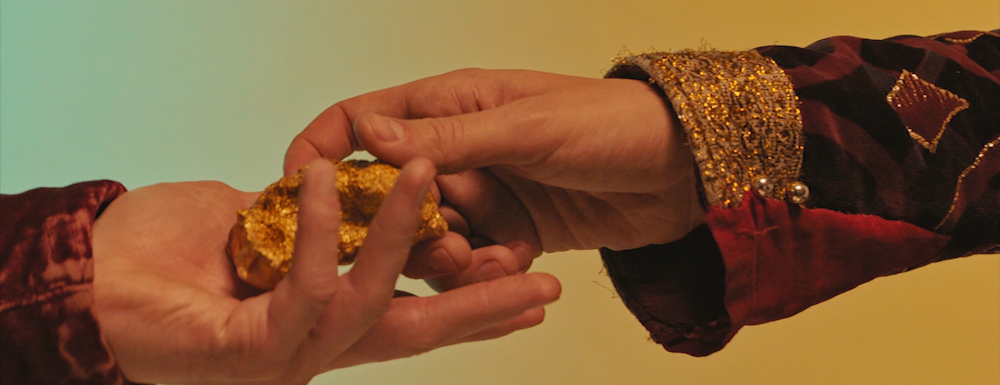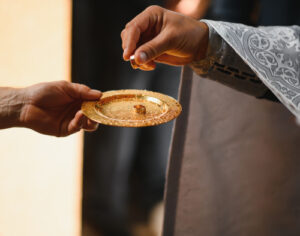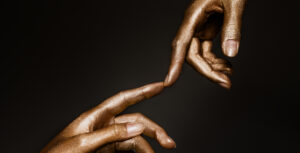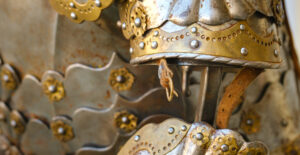
Sometimes the call comes as a whisper, barely heard above the static of everyday life. A dream, a shadow, a sudden illness with no medical name. Other times it arrives with force, knocking breath from the chest, demanding attention, demanding obedience. In South Africa, particularly among Nguni-speaking people, the calling to become a traditional healer, an ithwasa, is not something one chooses. It chooses you. It rearranges your life, rewrites your story, and begins to ask for things. Time. Sacrifice. Discipline. And gold. Not the kind you deposit in a bank or wear for status, but something older, stranger, tangled in spiritual economics that don’t follow market trends or modern logic.
There is a price to initiation, and it’s not just the cost of beads and blankets. There is the goat, the herbs, the drums, the meat for the feast. There are clothes to be bought, often in white, and a hut to be blessed. And then there is gold. Not always literal, but always symbolic. For some it’s a gold ring given to the gobela, the teacher who will guide you through the storm. For others, it’s a coin buried beneath a tree, or a small bracelet tied to the wrist to anchor you to your lineage. Sometimes it’s gold that appears only in dreams, pressed against your palm by an ancestor who vanished long ago but never really left.
You begin to understand that in this world, gold is more than metal, it is memory made tangible. A marker of promise. A token of trust between the living and the dead. It is not optional. It is not decoration. It is the price of being seen, of being chosen. And for many amathwasa, already navigating unemployment or estrangement, that price cuts deep. Families are split between belief and fear. Communities whisper. Some think it’s madness, others say it’s destiny. But the ancestors don’t accept excuses. When they ask, they mean it. And when they ask for gold, it’s not because they want wealth, it’s because they want commitment.
In rural villages and inner-city flats alike, stories surface. A man who ignored the dreams wakes up with a swollen tongue. A woman who tried to pray it away starts hearing voices at dawn. The calling comes in different shapes, but the rituals that follow are rooted in centuries of repetition. And at the center, always, is an offering. The most honest part of yourself. The most precious thing you can give. For some, that becomes a necklace passed down through generations. For others, it’s savings scraped together from domestic work, Uber shifts, or borrowed from a cousin who still remembers how their own mother started dreaming in colours no one could name.
 Those who enter initiation don’t just enter training, they enter exile. Ordinary life is paused. You are stripped of your old name, your phone, your schedule. You become a vessel. Every ritual, every dance, every bath is part of that reshaping. And within it all, there are tiny glimmers, gold beads sewn into garments, gold thread woven into hair, a golden pendant tucked quietly beneath the throat. These aren’t fashion statements. They are signals. To the spirits. To the community. To yourself.
Those who enter initiation don’t just enter training, they enter exile. Ordinary life is paused. You are stripped of your old name, your phone, your schedule. You become a vessel. Every ritual, every dance, every bath is part of that reshaping. And within it all, there are tiny glimmers, gold beads sewn into garments, gold thread woven into hair, a golden pendant tucked quietly beneath the throat. These aren’t fashion statements. They are signals. To the spirits. To the community. To yourself.
And yet, there’s contradiction. In a country grappling with poverty and inequity, the gold requested by the ancestors can feel cruel. How do you afford a ceremonial ring when you haven’t paid rent? How do you host a feast when your fridge is empty? But the elders say that’s the test. That’s where the lesson lives. Not in opulence, but in sacrifice. What are you willing to give to align with your path? What are you willing to lose, to step into a role that offers no salary, only healing, only burden, only purpose?
It is here, at the meeting point between gold and grit, that a deeper understanding blooms. Because the gold isn’t always about material value. Sometimes it’s symbolic gold, the courage to be ridiculed, the strength to be different, the audacity to believe that voices from another realm know better than voices on the radio. It’s the gold of dreaming in public, the gold of dancing when no one else hears the drum. And eventually, if the process is honoured, if the lessons are learned, the gold begins to show itself in subtler ways. A reconciled family. A patient healed. A child no longer screaming in the night. That’s the true gold. The transformation. The return.
Still, not everyone makes it. Some leave the path. Some collapse under the pressure. Some disappear altogether, swallowed by doubt or by shame. But those who do complete their initiation come out changed. They speak differently. Walk differently. Their eyes hold something that wasn’t there before. They no longer wear gold for vanity. They carry it in their bones.
In the cities, people might call it superstition. On social media, it might be mocked or misunderstood. But deep in the rural kraals and township backyards, where drums echo into the blue dusk and incense curls into the air like a whisper from the past, there are young people answering a call older than colonisation, older than church, older than gold itself.
And if you listen closely, you might hear it too. That soft, ancestral whisper that says the price of purpose is not always measured in cash, but when it is, the ancestors still prefer to be paid in gold.



